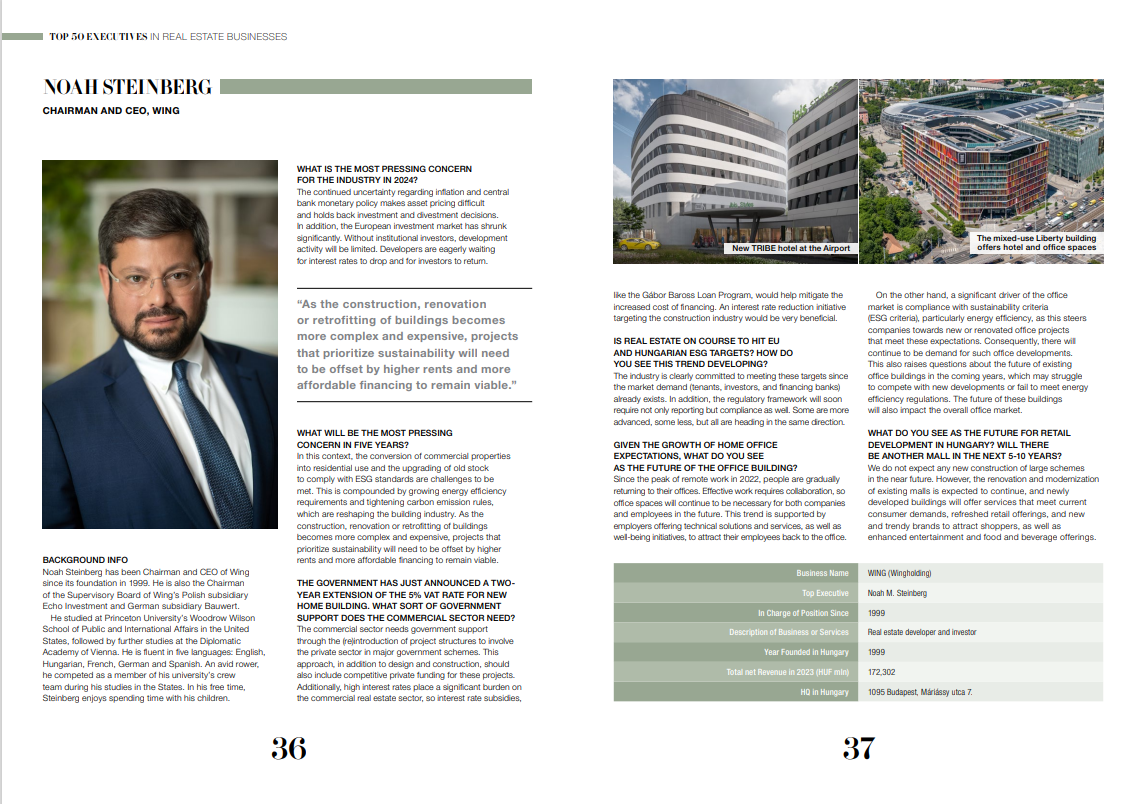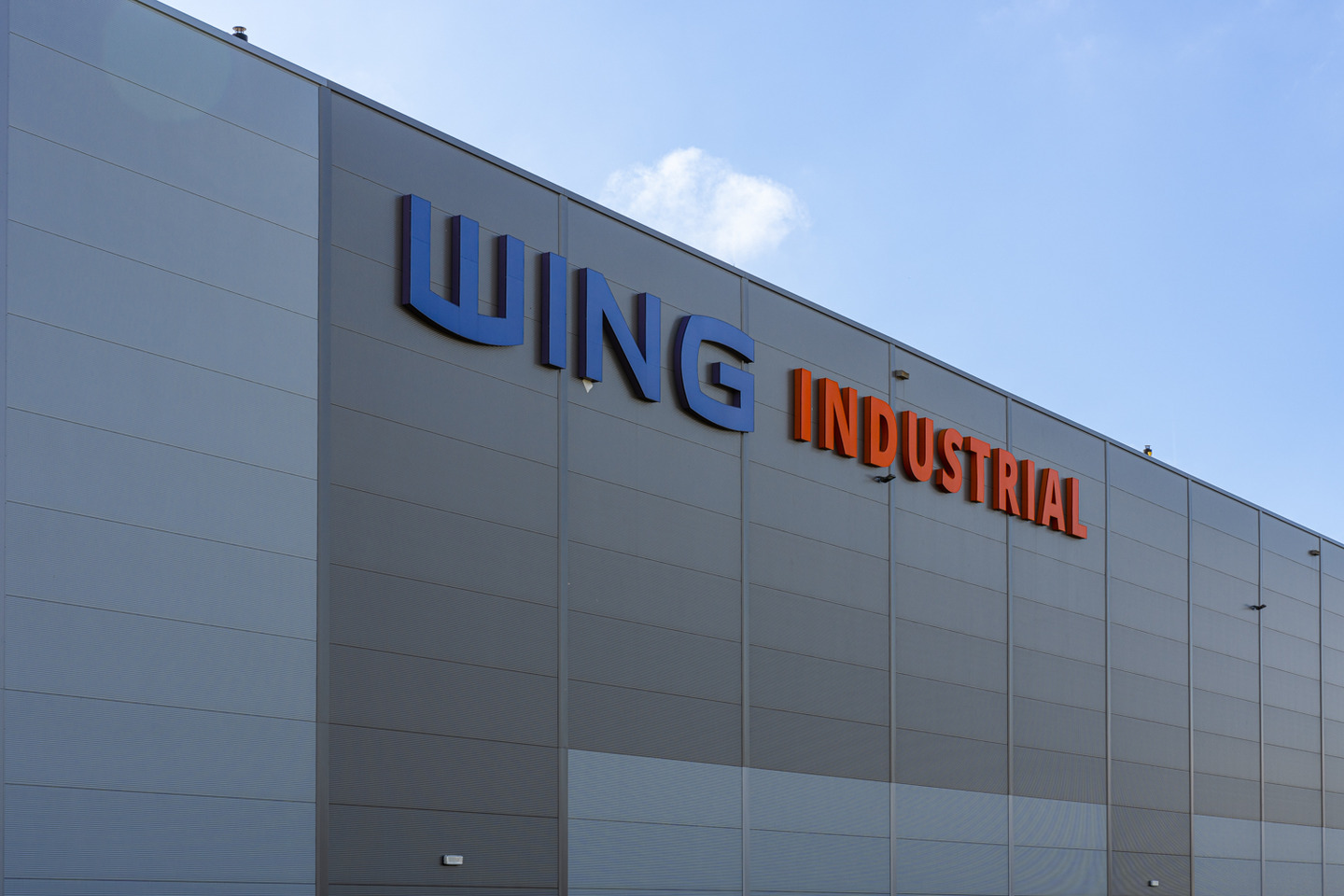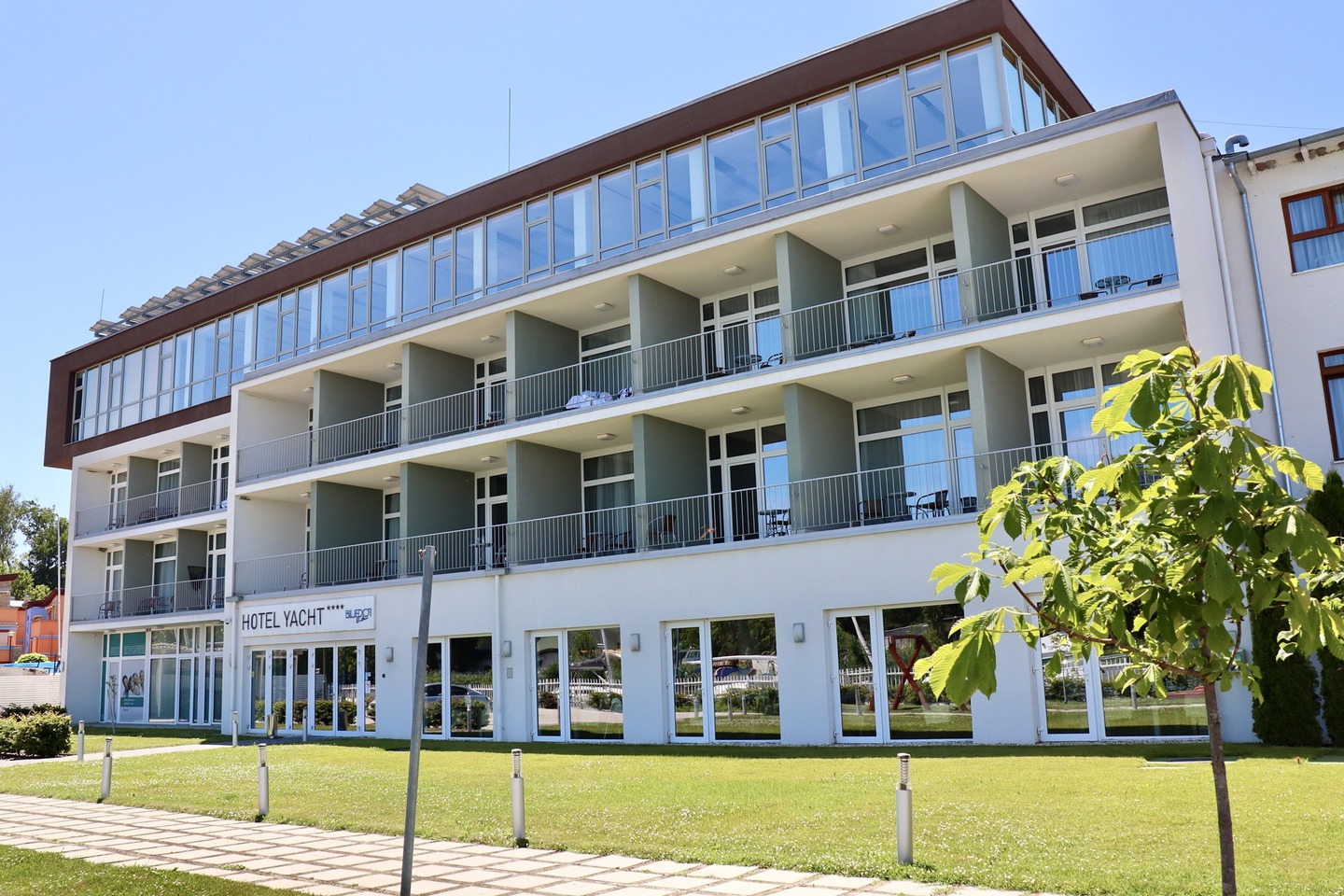Noah Steinberg - Top 50 Executives in Real Estate Businesses 2024
2024-07-23
Noah Steinberg, Chairman and Chairman&CEO of WING, has been included in the 2024 Top 50 Real Estate Executives list in Hungary. The Top 50 Real Estate Executives is an annual special publication by the BBJ Budapest Business Journal that profiles the most influential real estate leaders working in the Hungarian economy. In the interview, Noah Steinberg addressed several interesting questions, including pressing issues affecting the industry, the needs of Hungarian ESG goals, and the future of retail in Hungary.
BACKGROUND INFO
Noah Steinberg has been Chairman and CEO of Wing since its foundation in 1999. He is also the Chairman of the Supervisory Board of Wing’s Polish subsidiary Echo Investment and German subsidiary Bauwert. He studied at Princeton University’s Woodrow Wilson School of Public and International Affairs in the United States, followed by further studies at the Diplomatic Academy of Vienna. He is fluent in five languages: English, Hungarian, French, German and Spanish. An avid rower, he competed as a member of his university’s crew team during his studies in the States. In his free time, Steinberg enjoys spending time with his children.
What is the most pressing concern for the industry in 2024?
The continued uncertainty regarding inflation and central bank monetary policy makes asset pricing difficult and holds back investment and divestment decisions. In addition, the European investment market has shrunk significantly. Without institutional investors, development activity will be limited. Developers are eagerly waiting for interest rates to drop and for investors to return.
“As the construction, renovation or retrofitting of buildings becomes more complex and expensive, projects that prioritize sustainability will need to be offset by higher rents and more affordable financing to remain viable.”
What will be the most pressing concern in five years?
In this context, the conversion of commercial properties into residential use and the upgrading of old stock to comply with ESG standards are challenges to be met. This is compounded by growing energy efficiency requirements and tightening carbon emission rules, which are reshaping the building industry. As the construction, renovation or retrofitting of buildings becomes more complex and expensive, projects that prioritize sustainability will need to be offset by higher rents and more affordable financing to remain viable.
The government has just announced a two-year extension of the 5% VAT rate for new home building. What sort of government support does the commercial sector need?
The commercial sector needs government support through the (re)introduction of project structures to involve the private sector in major government schemes. This approach, in addition to design and construction, should also include competitive private funding for these projects. Additionally, high interest rates place a significant burden on the commercial real estate sector, so interest rate subsidies, like the Gábor Baross Loan Program, would help mitigate the increased cost of financing. An interest rate reduction initiative targeting the construction industry would be very beneficial.
Is real estate on course to hit EU and Hungarian ESG targets? How do you see this trend developing?
The industry is clearly committed to meeting these targets since the market demand (tenants, investors, and financing banks) already exists. In addition, the regulatory framework will soon require not only reporting but compliance as well. Some are more advanced, some less, but all are heading in the same direction.
Given the growth of home office expectations, what do you see as the future of the office building?
Since the peak of remote work in 2022, people are gradually returning to their offices. Effective work requires collaboration, so office spaces will continue to be necessary for both companies and employees in the future. This trend is supported by employers offering technical solutions and services, as well as well-being initiatives, to attract their employees back to the office.
On the other hand, a significant driver of the office market is compliance with sustainability criteria (ESG criteria), particularly energy efficiency, as this steers companies towards new or renovated office projects that meet these expectations. Consequently, there will continue to be demand for such office developments. This also raises questions about the future of existing office buildings in the coming years, which may struggle to compete with new developments or fail to meet energy efficiency regulations. The future of these buildings will also impact the overall office market.
What do you see as the future for retail development in Hungary? Will there be another mall in the next 5-10 years?
We do not expect any new construction of large schemes in the near future. However, the renovation and modernization of existing malls is expected to continue, and newly developed buildings will offer services that meet current consumer demands, refreshed retail offerings, and new and trendy brands to attract shoppers, as well as enhanced entertainment and food and beverage offerings.
To buy the magazine click on the link below:






